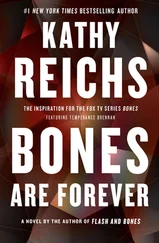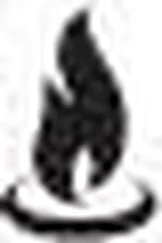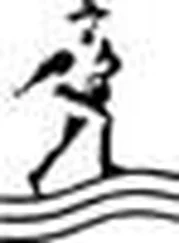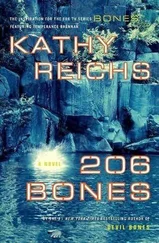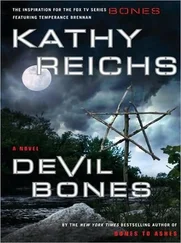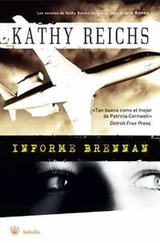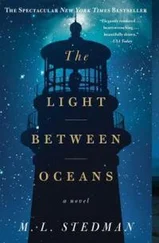The streets were curving, tree-lined, and named after flowers. As Slidell wound from Marigold to Poppy to Rockett’s address on Azalea Court, I noted that every backyard was fenced, every front lawn mowed and edged. Here and there a bike or scooter lay abandoned on a walkway or propped against a staircase, porch, or foundation.
It was a hood that made you think of kids, dogs, and retirees. What did Harry call houses like these? Starter-ender homes.
Slidell pulled to the curb in a cul-de-sac shaded by two magnolias and a towering pine. Behind each magnolia was a ranch, one salmon, one green. Below and behind the pine was a brown two-story that New Englanders would call a saltbox.
“Anything strike you weird about this place?” Slidell had looped the court to park facing out, and was scanning the street we’d just driven down. His jaw was working double time. The gum was making wet popping sounds.
I followed Slidell’s sight line. Saw nothing but closed doors, blank windows, and a lot of azalea bushes, none in bloom.
“Looks pretty quiet.”
“Damn quiet.”
“We’re on a cul-de-sac in the burbs on a rainy Thursday afternoon.”
“La-dee-da. Cool-day-sac.” Slidell freed his belt. “Guy lives on a freakin’ dead end.”
Flashbulb image. The face in my purse.
I felt a wave of pity, followed by unease. Would Rockett be as disfigured as the snapshot suggested? Was that why he lived on a “freakin’ dead end”?
“Rockett’s place isn’t flashy.”
“Squirrel’s either a piss-poor smuggler or one cagey sonofabitch.”
“Did you check how long he’s lived here?”
“Deed’s been registered in his name since 1991.”
“So he bought the property shortly after his retirement from the military. Mortgage?”
“No.”
“He could have saved up. Or inherited money.”
Slidell worked a molar with a thumbnail, then resumed chewing. “Wonder what the neighbors think of his gardening skills.”
He was right. Maybe it was the perpetual shadow cast by the pine. Maybe lack of interest. The emphatically green lawns to either side ended abruptly at the boundaries of Rockett’s patchwork of dirt and grass.
“Let’s roll.”
“Remember,” I warned. “Dew will be pissed if we goad Rockett into hiring an attorney.”
“Ee-yuh.”
I climbed from the Taurus and headed toward the house, raindrops gently cooling my face. I focused on the sensation to clear my head.
Of pity for Rockett.
Of thoughts of Katy and IEDs.
The door, painted brown to match the siding, had a black wrought-iron knocker in the shape of a cannon. Slidell banged it. Banged again.
In the distance, traffic hummed on Highway 51. No sound came from inside.
Slidell was about to whack away a third time when a lock rattled. His body tensed as the door swung in.
So did mine.
It had not been a trick of unkind light. And the scarred flesh had experienced no rebirth or restoration since the photo had been taken.
Though the day wasn’t cold, Rockett wore a black knit hat pulled low to the level his brows should have been. The fingers wrapping the doorjamb were waxy and pale and had no nails. Above the hand, the edge of a tattoo winked from the cuff of his long-sleeved tee.
Rockett looked at Slidell, then at me, the left side of his face frozen, the right side crimped in a scowl.
I forced my expression neutral.
Slidell held up his badge. “Charlotte-Mecklenburg PD.”
Rockett’s good eye flicked to the shield, returned to us.
“What do you want?” Gravelly, but deep.
Slidell hit him with the old saw about asking a few questions.
“About what?”
“You want we should do this in front of the neighbors?”
“You see any neighbors?”
Slidell crossed his arms and spread his feet. “Or we could do it uptown.”
“You got a warrant?”
“Should I have a warrant?”
“You tell me.”
The two men locked eyeballs. Which were at about the same level. But Rockett’s neck was thick, his body all muscle. The definition under his tee spoke of hours in a gym.
Mimicking his unwanted caller, Rockett crossed his arms and set his feet wide.
A flush darkened Slidell’s face.
“This really won’t take long.” I smiled, trying to defuse the macho standoff.
“Who the hell are you?” Holding his gaze on Slidell.
“Dr. Temperance Brennan. I—”
“Lady works at the morgue.”
Rockett’s right cheek may have twitched slightly at Slidell’s response. A beat. Then he inhaled through his good nostril, exhaled slowly. I thought he’d send us packing.
“Ten minutes.” Rockett stepped back.
Slidell spit his gum into the grass and entered. I followed, into a windowless foyer with checkerboard flooring, folding doors on the left, wall pegs on the right. A knitted cap hung from one, a black windbreaker from another.
Rockett led us into a parlor with a picture window that was curtained against daylight. The room’s only illumination came from a flat-screen TV the size of a billboard. Sports highlights played soundlessly, bathing the room in jumpy kaleidoscope patterns.
A brown leather couch sat opposite the television. Flanking it were distressed wood-and-iron tables, maybe Restoration Hardware. Angled beside it was an elephantine recliner. The TV remote lay abandoned on one arm.
The room’s back wall held shelving half-filled with equipment relating to the audio-visual setup. A ship in a bottle. A combo thermometer-barometer device. Photos, mostly of men in uniform. A framed patch. I recognized the Marine Corps anchor and eagle embroidered on a red circle at center. The words DESERT STORM arced above, and TASK FORCE RIPPER arced below.
To either side of the shelving, lining the baseboard, were larger objects. A metal breastplate. A carved tusk. A painted ceramic vessel. A battle-ax. Each artifact looked seriously old.
I caught Slidell’s eye. He nodded. He’d noticed, too.
Rockett gestured toward the sofa but remained standing. So did Slidell. So did I.
“Clock’s running,” Rockett said to Slidell.
“Save the attitude.”
Rockett’s spine, rigid as a mast, went even straighter.
“What’d you say your name was?”
“Slidell.”
“Fire away, Slidell.”
“How ’bout we talk stolen dogs.”
Something flickered in Rockett’s good eye. Surprise? Relief? He said nothing.
Slidell waited.
At length, Rockett snorted, a dry, wheezy sound like air through a filter.
“You been talking to that fruit fly Dew?”
Slidell neither confirmed nor denied.
“You want me to react?” Rockett asked.
“You want to react?”
“Will it get you and Sister Wide Eyes out of here sooner?”
“Might.”
“ Stolen is the wrong word,” Rockett said.
“Enlighten me.”
“I bought the dogs from a farmer. Guy was so eager to sell he nearly peed his gauchos.”
“ICE don’t look kindly on relic smuggling.”
“I didn’t know they were old.”
“That your hobby? Buying up mummified pets?”
“Dew’s got no case.”
I knew Slidell was leading Rockett, getting him to believe we were there because of illegal antiquities. Target lulled into overconfidence, Slidell would pounce.
As the men spoke I glanced across a corridor into what the architect had probably intended to be the dining room. Instead of table, chairs, and buffet, the room held a bench press, weights, chin bar, punching bag, treadmill, and elliptical.
“ICE thinks you’re dirty,” Slidell said.
“They’ve got nothing.”
“Yeah?” Slidell jabbed a thumb over his shoulder. “You get that shit at the Walmart?”
Читать дальше

